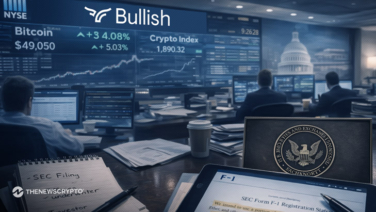- The SEC has given Elon Musk 48 hours to settle or face charges over his 2022 Twitter purchase and Neuralink involvement.
- Elon Musk has called the SEC a “weaponized institution,” criticizing its use of power for political motives and regulatory overreach.
Elon Musk, the tech billionaire and owner of X (formerly Twitter), has found himself in the U.S. Securities and Exchange Commission (SEC) crosshairs. The agency, led by Chair Gary Gensler, has issued Musk a settlement demand, “warning of potential enforcement actions unless he agrees to a deal within 48 hours.”
The private discussions became public when Musk, now a top adviser to President-elect Donald Trump, revealed a letter from his lawyer Alex Spiro via X post.
Oh Gary, how could you do this to me? 🥹 pic.twitter.com/OoooQI77ZS
— Elon Musk (@elonmusk) December 12, 2024
The SEC’s probe focuses on Musk’s 2022 acquisition of Twitter stock, which they allege may have involved delayed disclosures, possibly giving him an advantage in securing a large stake at a lower cost. While the exact nature of the charges remains “unclear,” the agency has reportedly reopened an investigation into Neuralink, adding to Musk’s legal challenges.
Further, the letter questions the motivations behind the investigations, suggesting political bias and even calling out potential interference from the White House. Spiro also revealed that the SEC had recently subpoenaed him, which he refused to comply with, further escalating tensions.
Musk’s SEC Battle Sparks New Conversations on Regulation
Elon Musk is known for his outspoken “criticism of regulators.” Now, he did not hold back, calling the SEC a “weaponized institution” on X and advocating for reforms to reduce agency overreach. However, Musk’s contentious relationship with the SEC dates back to 2018 when he faced fraud charges over a tweet about taking Tesla private. That case ended with Musk and Tesla each paying $20 million in fines.
Further, in late 2023, an animal rights group and four US lawmakers urged the SEC to investigate Musk and Neuralink for possible securities fraud, citing allegedly misleading company claims.
Adding to the debate, pro-XRP lawyer John Deaton highlighted how the SEC’s aggressive tactics often target individuals and smaller businesses unable to fight back. Citing cases like Ripple and LBRY, he noted that companies often spend millions defending themselves, even in non-fraud cases.
As the 48-hour deadline looms, Musk’s standoff with the SEC has captured attention once again, reigniting discussions about regulatory power and its impact on businesses.
Highlighted Crypto News Today
Bitcoin Faces Crucial Resistance at $100K After Recent Turmoil








